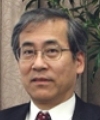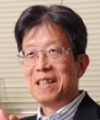Home > Principle Investigators, Research Themes

| Direct reprogramming of fibroblasts into cardiomyocytes by defined factors and its application to potential regenerative therapies | |
| Search for pathogenesis and novel therapeutics of hematological malignancies based on generation of iPS cells from primary tumor cells | |
| The generation of high-quality human iPS cells and their characterization | |
| Construction of functional liver tissues using iPS cells | |
| Establishment of the mouse model with human liver derived from iPS cells and its use for experimental therapy | |
| Chemical regulation of nuclear epigenome and mitochondrial genome | |
Direct reprogramming of fibroblasts into cardiomyocytes by defined factors and its application to potential regenerative therapies

Masaki Ieda
Project Assistant Professor, Keio University
Heart disease is a leading cause of mortality. Because cardiomyocytes have little or no regenerative capacity, cardiac regeneration is a very exciting therapeutic approach. Pluripotent stem cells possess cardiogenic potential, but efficiency of cardiac differentiation, risk of tumor formation, and survival of transplanted cells must be overcome. We recently found that a combination of three developmental transcription factors reprogrammed cardiac fibroblasts directly into cardiomyocytes in mouse. We will investigate the mechanism of cardiac reprogramming and advance this new technology for potential regenerative therapies.
Search for pathogenesis and novel therapeutics of hematological malignancies based on generation of iPS cells from primary tumor cells

Primary tumor cells from patients with hematological malignancies are ideal sources for the research of pathogenesis and therapeutics, but it is often difficult to obtain them sufficiently. In this study, we reprogram patient-derived tumor cells into iPSCs and expand them through re-differentiation into hematopoietic cells. Using these cells, we perform extensive studies which require a large number of living cells such as epigenomics, proteomics, functional genomics, and drug screening. Through these analyses, we aim to elucidate disease mechanisms and establish novel targeted therapies for hematological malignancies.
The generation of high-quality human iPS cells and their characterization

There are considerable differences between human and mouse iPS cells in the developmental state. Mouse iPS cells are closer to the ground state than human iPS cells. iPS cells derived from other animals (e.g. monkeys and pigs) are similar to human iPS cells in terms of the developmental state. The purpose of this study is to bring human, monkey, and pig iPS cells into the ground state to generate high-quality ones. We will also show what we can do using the high-quality iPS cells (dissociated culture, homologous recombination, animal developmental engineering, etc.).
Construction of functional liver tissues using iPS cells

Functional hepatocytes are necessary for regenerative medicine, drug discovery and bioartificial liver.This project is aiming at reconstruction of three dimensional liver tissues in vitro using hepatocytes in combination with hepatic non-parenchymal cells. The ultimate goal is to make fully functional liver tissues in vitro using human iPS cells, which can be used for drug development.
Establishment of the mouse model with human liver derived from iPS cells and its use for experimental therapy

To test the safety and usefulness of human iPS derived liver cells in vivo, we develop 1) optimum mouse for transplantation of human liver cells, 2) mouse with human liver, 3) mouse with human liver derived from iPS cells of patients with human genetic diseases, 4) ideal mouse model for patho-physiological analysis and experimental therapy.
Chemical regulation of nuclear epigenome and mitochondrial genome

Epigenetics in the nuclear genome, which is mainly controlled by histone modifications, plays an important role in reprogramming and cellular differentiation. Compared to the nuclear genome, mutations accumulate more frequently in the genome of mitochondria, which is involved in aging and age-related diseases. Reprogramming of not only the nuclear but also the mitochondria genome is desired for ideal regeneration therapy using induced pluripotent stem (iPS) cells. This project aims at developing new technologies to enhance reprogramming and differentiation by identification of bioactive compounds that regulate epigenetics and mitochondrial DNA metabolism.


